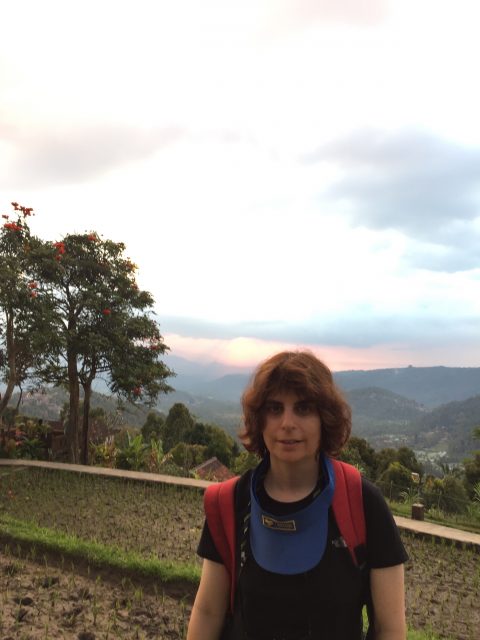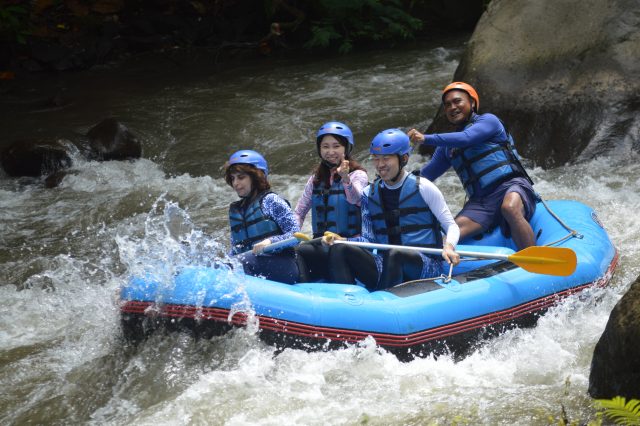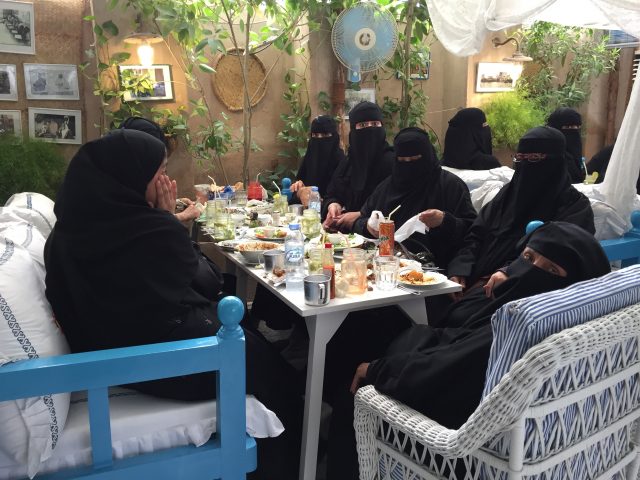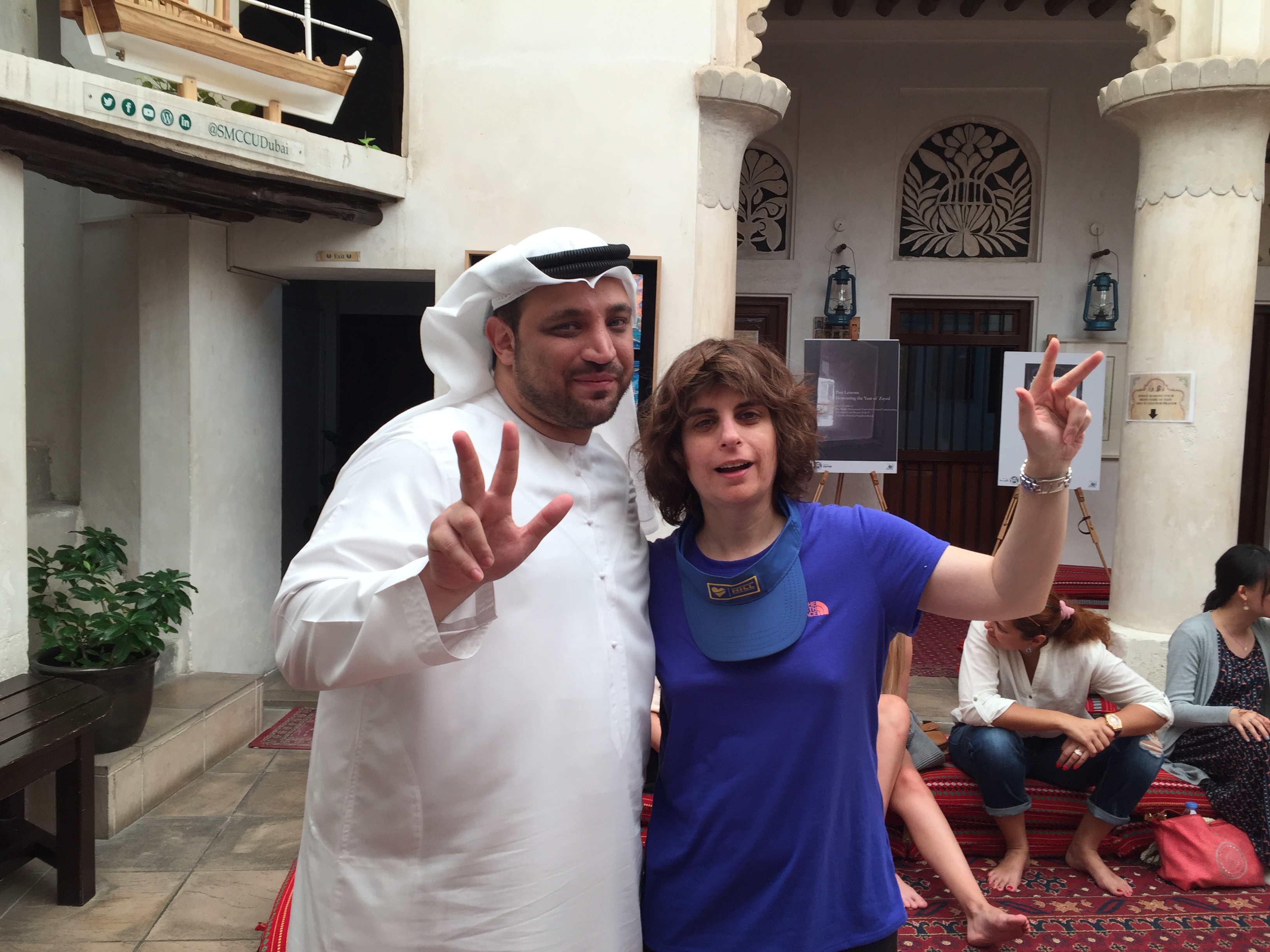Part 1: Organizational Nightmare
So often, when I told people about my upcoming summer trip — a month in Ubud, Bali, followed by 8 days in Dubai — a particular question followed: “Who are you going with?”
“No one!” I would reply.
The first few times this happened, I said it with pure joy, but then I learned that people tended to react negatively to this news. “Are you nervous?” they would ask. One friend told me she went to Rome alone, but then spent most of her time in her hotel room, reading, because she didn’t enjoy exploring the city on her own.
Yes, I was nervous — petrified, actually — but not for the reasons most people mentioned. I was terrified about all the logistics. Packing, keeping my stuff organized enough in the hotel room to function and make it outside each day with everything I needed, finding my way around — or, more true to my experience, finding people throughout the day who would be willing to offer directions slowly and clearly enough that I could follow them… these were the issues that preyed on me.
I did fantasize about having someone join me, but I didn’t actually want to spend time with the person on the trip. I wished I could create someone through some kind of magic who would pack for me, carry my suitcase, deal with all issues in the airport and lead me where I needed to go, organize my things when it was convenient for me once I arrived at the hotel, find places and lost belongings for me…. and then disappear into some mysterious mystical plane where they would thrive and exult on their own.
When I went to upscale restaurants, my fantasy companion would appear as a realistic simulacrum of a person but not actually be a person in the classic sense. I wouldn’t want a real person horning in on my time, throwing in their own preferences and desires when I wanted to choose the place and exactly what I wanted to eat. This simulacrum would simply appear to be a person so no one would find it strange that I was eating in a special-occasion place alone. I wanted to be alone: that was no problem. But, in my absolutely ideal world, I wouldn’t have to field questions like: “Do you want a drink while you wait for your party to be complete?” My party was complete. My party is always complete. I certainly do hang out with other people sometimes and love it, but, even so, my party is very complete on my own.
I was very right to feel terrified over logistics. Every day of my trip, getting ready to leave my hotel room and dealing with new steps (like bug repellent to stave off Bali’s mosquitoes) was a minor trauma. I’m used to being lost, so that was nothing new, but my total disorientation joined forces with Ubud’s terrifyingly busy, crosswalk-free streets, and sidewalks filled with deep holes that needed to be watched for and circumvented with every step.
Still, I was even more right to push through my terror and go anyhow: a major challenge in itself. As the time to leave approached, I began to half-hope that something would happen to derail my trip. Not a disaster, of course. God/The Universe/Whatever Might Control These Things needed to keep those far away. Just something… strange and expected. Maybe a fantastic publisher would call out of the blue and say they wanted to do a book with me but it would be due the end of the summer. I had trip insurance that included a “cancel for any reason” clause, and that would have been more than good enough for me. Maybe Emirates, the airline I was flying with, would all of a sudden suspend flights out of Boston, and there would be no way of switching things around that felt doable.
I wasn’t all that afraid of being in Ubud, my first destination, or in Dubai, where I planned to head later in the summer. I didn’t yet know about Ubud’s super-busy streets or pitted sidewalks, and, even if I had, I would have realized that I could take my time when walking and work around them. If anything, getting around as a non-driver would be much easier, since hired cars were much less expensive in both places than in Boston: a much wider range of places would be accessible to me. What I really, really feared was packing.
Weeks before my departure date, I experimented with folding clothing and negotiating my suitcase’s limited space… and would always give up, telling myself I still had time. And then I didn’t have so much time anymore. I somehow had to squeeze sufficient toilet articles and clothing for 5 weeks into my suitcase… and pray to whatever God or positive energy that might exist that it would be sufficient, and that my suitcase wouldn’t burst from the poor organization. I shoved stuff in and squeezed the sides of my suitcase together, crying when I couldn’t get it to close. Then, I got it to close, and realized I wouldn’t bet my life that I had put in my special soap or my carefully shopped-for-and-chosen swim outfit. So… efficient soul that I am… I unzipped the bag and went tearing through the contents until I found what I needed. Then I tried as hard as I could to refold whatever had unfolded and, after several hysterics-filled attempts, re-zipped the bag. And then I thought: “What if I forgot my jacket — the only one I’ve ever had that works well during a hot summer rain?” And the whole sad, frantic process began anew.
The day of my departure, July 18, arrived. I closed my suitcase one final time, prayed to my usual vague-but-hopefully-kind-and-powerful recipient that all would go well, and headed to the subway to take me to Boston’s Logan Airport. The plane left late at night, shortly before midnight: perfect for me, since I had the whole day to get myself and my things together.
I left earlier than necessary, figuring I’d avoid any remote chance of being late and put myself on track to deal with any unexpected problems at a leisurely pace. When I found the line for my Emirates Airlines flight to Dubai, where I planned to catch a connecting flight to Bali, I found people from a wide range of backgrounds — including many South Asians, a few Africans, several who seemed Arab, and whites of various types — grumbling and asking to see the most powerful manager possible. It turned out that my flight was cancelled, and everyone on it was put on one that would leave the following evening, after midnight.
To make a long and not terribly interesting story short, I called Emirates and ranted about the botched plans and my odds of not arriving on time for my workshop with the new arrangements, and the employee, a middle-aged-sounding man with an accent I can best describe as Indian/British, told me that, if I wanted, I could cancel the whole thing and get a full reimbursement for my flights. The plane was the only thing I had paid for in advance, so this was a chance at a full refund, last minute. I could stay in Cambridge, MA and relax in my usual cafés all summer. I wouldn’t have to miss the happy little picnics and parties my friends were planning for the weeks I’d be away. I could visit my parents in NJ and hang out in my beloved NYC. In short… I could spend my summer in my usual way.
This was tempting for an inept soul like me who had decided to do something that required organizational skills that were likely far more complex than I could handle. But immediately I realized: my bag was already packed! I had even managed to secure the zippers with the little twisty things I had bought, after numerous botched attempts! This was the part that terrified me most. Of course, I’d have to do it again two more times: once when I traveled to Dubai when my time in Bali was over, and once when I returned to Boston. But, if I could do it once, I could do it again.
The tension of all that packing and checking had been bone-chilling. I couldn’t let that hardship turn into a useless enterprise. The next day, I set out for the airport once again, and, amazingly, everything went smoothly, and I wound up in the city of Ubud on time to start my workshop with everyone else.
Part 2: And Then I Arrived In Bali… And Thrived
From the moment I arrived at my hotel, I knew this trip was the right thing for me, especially the going alone part. The friendly young guys who worked the desk late at night had my room all ready. They wore colorful sarongs, the skirt-like cloths that are traditional lower-body garb for both men and women, which struck my exhausted yet curious eyes as a sign of the new culture I would be exploring. My room had a private balcony overlooking a coconut tree, the hotel’s pool, and lush tropical trees dotted with triangular thatched roofs.
I love the view from my 9th floor Cambridge, MA apartment, but it’s nothing like the scenery from my room at the Okawati Hotel. And that’s a good thing. I crave changing sensations: new food, new sights, new people, new beliefs, new experiences. And, at least for me, it’s much harder to seek out and embrace the new when someone from your past life — even a well-loved someone — is with you.
While in Ubud and other parts of Bali, I had adventures that never would have happened if I hadn’t been alone. I wandered onto families’ private property and received a warm welcome many times. The first time, it was an accident: I had no idea that the low, long building surrounded by an outdoor space that included a small Hindu temple was a private home… but it was, as the friendly youngish guy savoring a thin cigarette explained to me. He lived there with his entire extended family: parents, grandmother, brothers, nieces and nephews, sisters-in-law, wife, and two young sons.
Later on, I entered these large family homesteads more knowingly, and was never turned away. While few Balinese people speak fluent, grammatical English, most speak and understand some, and it seemed that most were always looking to improve their English… even if that meant chatting with some non-Balinese interloper who wandered onto their private property. With the help of the Balinese leader of a workshop I took on Balinese Hinduism and healers, I wound up on several of these homesteads, getting a sense for their healing techniques and, later, interviewing them about their beliefs concerning death and what might come next for a deceased soul.
I spent hours with a Balinese priest and his buddy, my workshop leader: the three of us explored deep philosophical questions regarding death, reincarnation, and the Hindu belief that, ultimately, a soul’s destiny is to merge with God and become one with the universe at large… whatever that might actually mean. We pondered possibilities for what it might mean in ways our human brains could understand, the priest pointed out relevant passages in his scholarly tomes, and I cried. I felt an odd combination of sadness, confusion, and terrified openness to a new possibility. I’ve never wanted to merge with anyone or anything… even God. My ultimate dream is immortality as myself. But it dawned on me that maybe I just couldn’t comprehend the glory that merging with God would bring. The feeling in Balinese Hinduism is that this is the ultimate bliss, something that every conscious soul would ultimately reach. I faced this dissonance… and cried.
The men I was with were very understanding. “Go ahead and cry; you’re with friends,” my workshop leader (also a well-known spiritual practitioner in the community) told me. They laughed many times, bringing me into their jokes whenever they could translate their thoughts. A few times, the priest took a break to hang out with his adorable little round-faced grandson. I had landed in an intimate spiritual discussion between close pals whose ideas and background were nothing like anything I had experienced back home, even in my diverse neighborhood. And let me tell you: as wonderful as so many of my friends and family members are, this scene probably never would have happened if I had taken this trip with someone else. I would have been encouraged to go shopping, to the beach, or to a museum that day. Something more amenable to pretty much any other person’s tastes than sitting around an old homestead discussing death for several hours.
More typical pleasures also provided more calm and, at the same time, more adventure than if I hadn’t traveled alone. Paradoxically, being alone is much more of a social magnet than moving in pairs or groups. When I’m not involved in conversation or other social activity, new people find me approachable. Over meals, I wound up chatting with people from all over the world: other lone travelers who sat beside me. I learned many of my deeper, juicier insights about Balinese culture through these chats: that some areas have a fairly well-developed gay scene, and that locals and tourists participate together in those ventures; that it’s fairly common for affluent, older female expats to help support young Balinese men financially, in exchange for various favors and expressions of respect (it’s very possible that affluent male expats can be similar, but this didn’t come up in the chats I happened to have); and that the many expats buying and renting homes in the area were driving up prices and making it much harder for locals who want to live on their own, apart from family homesteads, to afford housing.
Even during standard tourist activities that seem wonderful to share with others, I got more intimate with my surroundings and their inhabitants as a lone traveler. For instance, when I went to a luwak coffee plantation (which produces a special kind of coffee with the help of a little animal called an Asian palm civet), I lingered over the delicious coffee and tea tasting a young Balinese woman offered me after the tour. I drank each small portion of flavored coffee and tea very slowly, lingering over coconut coffee, lemon tea, the special luwak coffee, and other favorites. I loved several of them and was thrilled to have the time to sip very slowly and savor. If I had been with someone else, I would have felt nervous and rushed. Groups came and left at tables around me while I lingered slowly over my tray of drink samples.
Because I was there so long, I chatted with my guide quite a bit, and she opened up about wishing she didn’t have to live with her husband’s extended family. She said she couldn’t be herself there, and that she just doesn’t feel comfortable at home. She misses her family of origin, but the culture expects couples to move in with the husband’s family after marriage. I became attuned to this issue after that conversation and wound up meeting several other Balinese women with similar feelings. If I had been with someone else — or, worse, a group of someone elses — I would have quickly tasted my drinks without lingering over their taste and left, long before this moving conversation could have started. Similar stories happened again and again: in an art gallery, at the beach, wandering through the streets… several times each day, I was thankful to be on my own, free to chat, explore, savor, and think on my own terms.


Part 3: Continued Fabulousness In Dubai
Later, in Dubai, where I stayed for 8 days before returning to Boston, I was equally relieved and thrilled to be on my own. I was able to linger as long as I wanted in the fabulous Arabian Tea House, in the old, traditional part of the city where I was based, savoring my camel milk ice cream and my hummus. This allowed me to spot the kinds of things that made my time in Dubai precious, like the group of Saudi women, fully covered aside from their deeply expressive eyes, enjoying a festive meal a few tables down.
In that same part of town, far removed from the glitzy and glamorous areas that most envision when they think of Dubai, I had a fascinating discussion with a local woman. In the delicious restaurant/gallery combination called Make Art Café, I wound up chatting with a tall, blonde, blue-eyed woman who had been married to an Emirati (a citizen of the United Arab Emirates — UAE — which include Dubai) as his second wife in a polygamous marriage. She grew up in the U.S., converted to Islam during her college years because of the wonderful Emirati friends she made, and moved to Dubai later on. Her marriage dissolved, but she is still a devout Muslim raising children in Dubai. We discussed the afterlife (very much a concept in Islam, including the notion that individual souls are eternal, and that the overwhelming majority eventually achieve a heaven-like state). We also discussed her marriage and the benefits and pitfalls of multiple wives (she believes the system can work, though it’s hard for a man to be fair to each wife as he allocates his time and affection).
I even asked her about Israel and discovered that, while it’s not possible to travel to the UAE with an Israeli passport because the government does not recognize Israel’s legitimacy, Israeli citizens who have citizenship elsewhere frequently come to Dubai. She told me that, contrary to some stereotypes, locals in the UAE absolutely believe that the Holocaust happened, and that their schools do not teach otherwise. She also said that Emiratis have no problem whatsoever with Jews, and in fact Muslim men are allowed to marry Jewish and Christian women because they follow unequivocally monotheistic religions (though the women are only allowed to marry Muslim men). As she explained it, any problems UAE citizens (a minority of those living in the UAE: most are expats from many areas throughout the world) have along these lines are with Zionism — support of the country Israel — and not with Jews or Judaism per se.
According to her, she and most others in that area do know that the situation has become complicated. They believe that the Palestinians were wrongly kicked off of their property, but they also understand that Jews have lived in that region for generations and realize that it would be ethically questionable to kick them out at this point. She wishes the area could be a religiously neutral zone, with freedom for all to explore religious sites and make a home there. I don’t necessarily think that her ideas represent Emiratis as a whole, but I was fascinated to get a line into her thinking: a stance radically different from the thoughts I typically hear among my friends and from the views that tend to get ascribed to Middle Eastern Muslims on the news.
I can almost promise you that this discussion would not have happened if I hadn’t been alone. Aside from the fact that a companion would have made me harder to approach, the overwhelming majority of my potential companions would have bristled at one thing or another, arguing or possibly just scowling, closing down my ability to explore this woman’s fascinating thoughts. Between multiple wives (but never multiple husbands); the freedom of men, but not women, to marry outside their faith; and this woman’s various thoughts on Israel… the dynamic we had created, with me asking questions and then listening openly to her responses without arguing or expressing distaste, would have been trashed for one reason or another.
And then there was my wonderful chat with an Emirati man in the posh, high-ceilinged lobby of Dubai’s ultra-upscale Burj Al Arab Hotel. (Note: not the man pictured at the top of this essay: I met him at yet another intriguing place in Dubai: The Sheikh Mohammed Centre for Cultural Understanding.) I’d eaten lunch at the Burj Al Arab on the very last day of my trip, and, when I found a pair of friendly-looking Emirati men chatting over coffee and pastries, I asked if I could take their picture (they were wearing the distinctive headscarves and white robes that Emirati men favor when they choose traditional clothing). I wound up talking with one of them for quite a while. He told me that he’d been a middle-class kid who felt jealous of his wealthier friends, but he later became close to the royal family through his work as an adult, and realized that money is not so important beyond fulfillment of basic needs and simple pleasures. We discussed his beliefs on the afterlife too (very similar to the Muslim woman I’d chatted with in the café) … and his passionately expressed belief that the Koran is all a person needs to get intellectual sustenance through reading: he’s never read another book because the Koran provides him with such intellectual and ethical richness.
It was deep and invigorating, and, again, I feel almost certain that it wouldn’t have happened if I’d had company in that hotel. My companion and I would have been engrossed in conversation, and I wouldn’t have reached out. This was a beautiful way to end my active time in Dubai. From the Burj Al Arab, I returned to my much simpler hotel, bracing myself for the horror of packing. It took all night. I sobbed and moaned, hoping no one nearby could hear me. But I did it, and I made it back home, ready to rejoin my usual companions and share my fabulous journey with them.


Stephanie Wellen Levine is the author of Mystics, Mavericks, And Merrymakers: An Intimate Journey Among Hasidic Girls: winner of Moment Magazine’s 2004 Emerging Writer Book Award. Currently, Stephanie is on a spiritual quest as she completes a second book and teaches at Tufts University.

